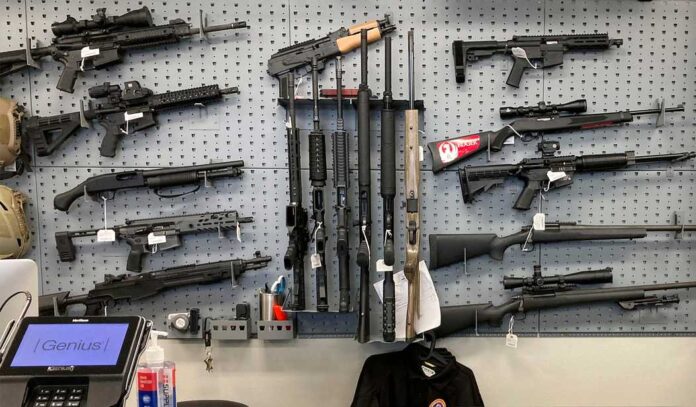The state of Maryland isn’t a gun-friendly place. To buy a handgun, you have to jump through a series of hoops that would never be considered remotely viable in most other places, for example.
And then we have so-called ghost guns.
Those have been banned for a little while, though it doesn’t seem to do much. In fact, a couple of recent incidents involving unserialized firearms left two toddlers injured and has activists screaming.
Two Maryland children under the age of five have accidentally shot themselves in separate incidents just days apart. Local lawmakers and gun safety advocates said the incidents are tragic, and ultimately avoidable.
…
The troubling news, according to law enforcement leaders and gun safety advocates, is not only were two loaded guns left within reach of children — but both were also illegal and untraceable “ghost guns.”
…
“In Maryland, there were three unintentional shootings in 2023, and now we have already reached that number in the first half of 2024,” said Dr. Nicole Hollywood, a volunteer for the Maryland Chapter of Moms Demand Action.
According to Everytown, there were 411 unintentional shootings by children nationwide in 2023.
That is the highest number since the organization started tracking cases in 2015.
Unintentional shootings involving children continue to happen despite Maryland having some of the strongest laws in the country.
Which, of course, means that the laws in question–both against “ghost guns” and the mandatory storage law on the books there–are useless. That seems pretty plain, and yet, the anti-gunners ignore that.
Moreover, they will likely demand stricter regulations from the legislature, potentially citing these incidents as evidence that more is needed.
The problem with that is that guns are required to be secured and “ghost guns” are banned. You can’t get much more strict than that, regardless of how you feel about such laws.
But let’s be real here. Prohibiting things doesn’t exactly have a track record of working.
In the 1930s, Prohibition sought to purge liquor from our nation. Instead of succeeding, we got the mafia and the speakeasy. At least people had the good sense to repeal that nonsense.
Even today, the inability to keep certain things out of people’s hands is a miserable failure.
Take Baltimore (please?) for example. The same state that these incidents happened in, right? Yet it seems they have a big issue: Drugs.
Over the past six years, as Baltimore has endured one of America’s deadliest drug epidemics, overdoses have fallen surprisingly hard on one group: Black men currently in their mid-50s to early 70s. While just 7 percent of the city’s population, they account for nearly 30 percent of drug fatalities — a death rate 20 times that of the rest of the country.
Black men of that age in the city are more likely to die of overdoses than cancer or Covid at the height of the pandemic; drugs are essentially tied with heart disease for their top killer. “I can’t think of another situation like this,” said Robert Anderson, chief of statistical analysis and surveillance at the Centers for Disease Control and Prevention.
Those men were part of a little-recognized lost generation, their lives shaped by forces that have animated the city’s drug crisis for decades, according to an examination by The New York Times and The Baltimore Banner.
Now, let’s remember that the only thing close to being more controlled than guns in this country is drugs. You simply cannot go into a drugstore and get yourself some fentanyl. It can’t be done lawfully anywhere in the nation.
Obviously, that means you can’t do it in Maryland, either.
And yet, there’s a problem with people overdosing on this drug and dying. They’re getting their hands on fentanyl, much like how earlier generations got their hands on alcohol during Prohibition.
When those who want something have the money, they will find a way to obtain that something.
The anti-gun activists don’t seem to grok that. They can’t comprehend it, so they lament the fact that the laws they pushed for didn’t do anything without any self-awareness at all.
Meanwhile, some of those laws may have resulted in people being hurt, but because that doesn’t make the headlines, they don’t feel any need to even consider the possibility.




